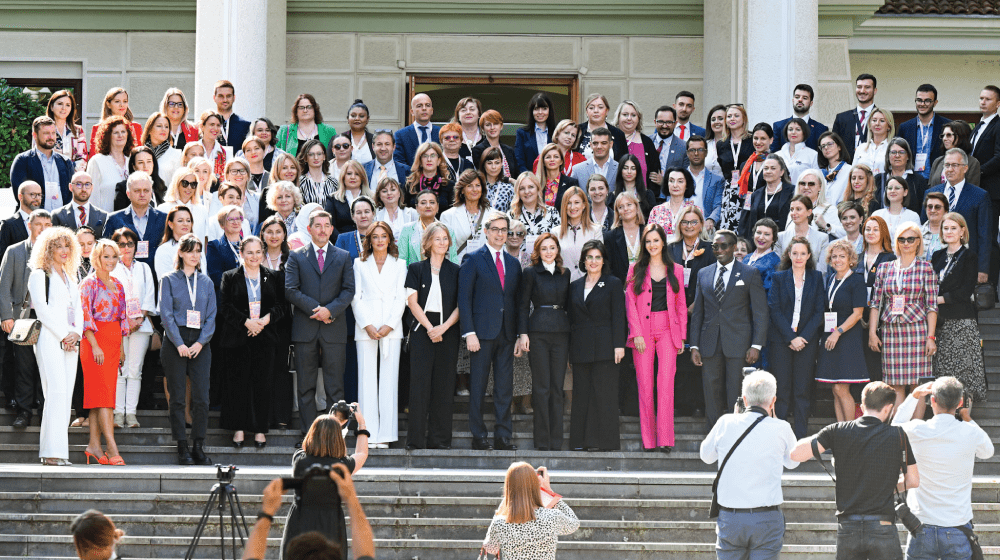SKOPJE, 5 October 2023 – Ensuring bodily autonomy is key for achieving gender equality and for unlocking the full potential of women and girls in the region, speakers said at the opening of a high-level event organized by UNFPA, the United Nations sexual and reproductive health agency, together with the Spouse of the President of North Macedonia and under the auspices of the President.
“Bodily autonomy is absolutely essential for empowering women and girls,” said Florence Bauer, UNFPA Regional Director for Eastern Europe and Central Asia. “It is also central to the development agenda, because we know that when women are empowered to realize their potential it contributes to building more equal, more integrated and ultimately more vibrant and thriving societies.”
“Bodily autonomy is a basic human right but remains elusive for too many women and girls around the world,” said Elizabeta Gjorgievska, Spouse of the President of North Macedonia. “Together, we will work tirelessly to ensure that the power of choice is a reality for everyone, regardless of their background or circumstances.”
“The anti-gender movement presents many challenges [for realizing bodily autonomy for women and girls] and maybe teaches us that changes need to be based on education as well as the legal framework,” said Jovana Trencevska, Minister of Labor and Social Policy of North Macedonia.
The right to bodily autonomy entails the power and agency to make choices about our own bodies, including on sexual and reproductive health issues, without fear of violence or coercion, and the ability to access services, information, and resources.
If women and girls are denied their right to bodily autonomy, they are less likely to have control in other areas of life, such as education, employment, or political participation.
This is why achieving bodily autonomy for women and girls is key for accelerating progress towards gender equality and for achieving the Sustainable Development Goals as well as the goals of the Programme of Action of the 1994 International Conference on Population and Development (ICPD).
Yet many people, and women and girls in particular, face constraints on their bodily autonomy. The consequences to their health, well-being, and potential in life can be devastating.
The international community recognized this challenge and, at the Generation Equality Forum (GEF) organized in 2021 to commemorate the 25th anniversary of the Beijing Declaration and Platform for Action, established an Action Coalition on Bodily Autonomy and Sexual and Reproductive Health and Rights. Led by UNFPA, North Macedonia, and other partners, the Action Coalition aims to galvanize support for making bodily autonomy and universal access to sexual and reproductive health and rights a reality for all.
The high-level conference “The Power of Choice: Realizing Bodily Autonomy for Women and Girls” is organized under the Action Coalition to revisit the commitments made in the region and develop a regional agenda for progress towards ensuring women’s bodily autonomy and sexual and reproductive health and rights.
The event also contributes to the regional review of progress made towards implementing the ICPD Programme of Action, which will culminate in a Regional ICPD30 Review Conference in Geneva on 19-20 October 2023.
The conference brings together some 100 policy-makers, civil society activists, youth leaders, experts, and other stakeholders to celebrate what has been achieved, reflect on new challenges, and design strategies and narratives uniting advocates in promoting sexual and reproductive health and rights and bodily autonomy, while fostering regional partnerships and collaboration.
For more information, please contact:
Jens-Hagen Eschenbaecher, UNFPA Eastern Europe and Central Asia, eschenbaecher@unfpa.org, +905497483655
Irena Spirkovska, UNFPA North Macedonia, spirkovska@unfpa.org, +38971321620


